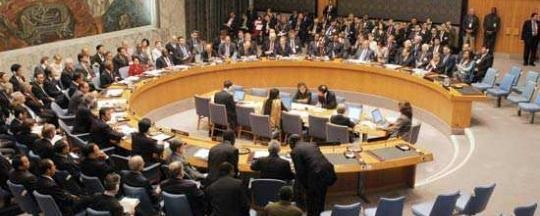The United States of America has proposed to a UN Security Council sanctions committee that South Sudanese army chief Paul Malong and rebel commander Johnson Olony be subjected to a global travel ban and asset freeze, but Russia objected to the move.
Russia requested on Tuesday to defer consideration of the American proposal, diplomats told Reuters. The proposal is therefore on hold, which means that the proposal is not dead, but will be considered again at a later date.
In remarks to the press, Russia’s ambassador at the UN explained that South Sudan had requested it to oppose the sanctions, pointing out that the South Sudanese foreign minister recently visited Moscow where he signed a joint communique with Sudan addressing this issue.
“We think we need to take that into account,” said Russian Ambassador Vitaly Churkin, as quoted by AP. “The United States, very often they just say ‘sanctions, sanctions, sanctions’ and in some cases it severely aggravates the situation.”
Russia’s request was backed by Angola and Venezuela.
The United States has not publicly explained why it wants to seize assets of the SPLA chief of staff, who is one of South Sudan’s most wealthy men. Previously, however, the US has claimed that it would target individuals responsible for warmongering or preventing resolution of the civil war.
Olony and Malong would be the seventh and eighth South Sudanese generals added to the UN Security Council sanctions lists. This theoretically subjects them to an asset freeze and travel ban.
The U.N. Security Council blacklisted six rival generals in South Sudan in July, the first people to be subjected to a global asset freeze and travel ban under a Security Council resolution aiming to punish warmongers in South Sudan.
None of their assets have been reported to have been affected, however.
Related:
Gen. Malong remains opposed to IGAD peace deal (26 Aug.)
Johnson Olony abducted ‘hundreds’ of boys to send to frontlines, UNICEF says (28 Feb.)




